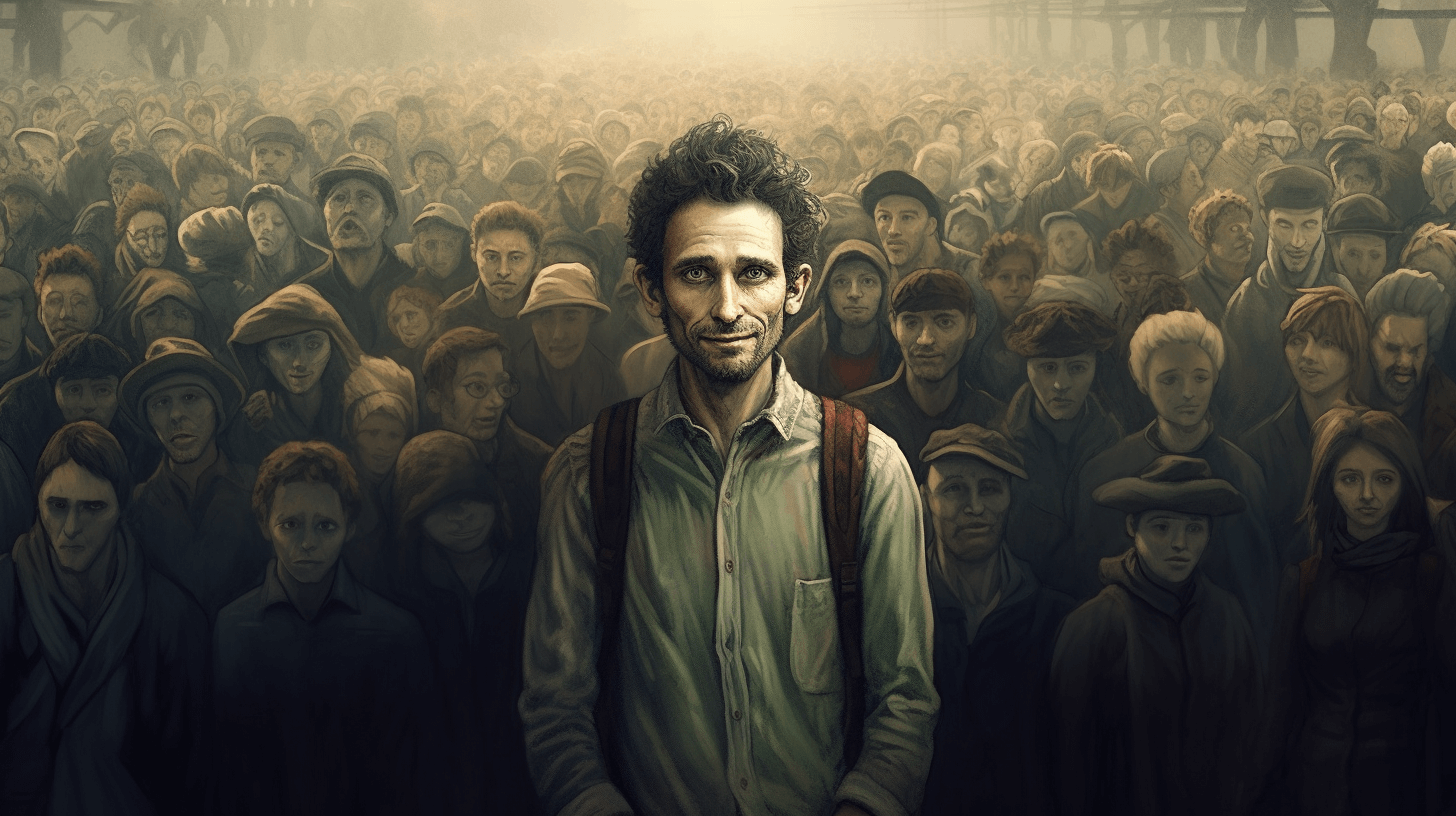Science
Is Water in Space the Rule, Not the Exception? The Mystery of Planetary Birth
24 February 2026

Antoine de Saint-Exupéry (1900–1944), the French writer and poet, once wrote: “To be a man is, precisely, to be responsible.” With this statement, he emphatically highlighted the connection between being human and the responsibility we either embrace or abandon. Saint-Exupéry emphasized the link between humanity, referred to in Greek as humanitas, and our capacity and readiness to respond to our fellow humans. It is essential to recognize that the term “responsibility” clearly derives from the verb “respond.” To what extent are we truly aware of and comprehending of this relationship? After all, it indicates the direction of ethical conduct towards others.
At first glance, the alternative presented in this article’s title might appear too radical. However, phrasing the problem this way immediately illuminates opposing poles between which humanity can be positioned—between them lies a spectrum of possibilities for human action. Sharpening the ethical perspective allows for close examination of human ethical behaviors. It seems that being responsible, both for oneself and also for others, is one of the key ethical challenges of the twenty-first century. For this reason, a closer examination of the ethical perspective of the philosopher Emmanuel Lévinas (1906-1995) can prove immensely beneficial for contemporary people. Lévinas advocates for renouncing violence in our interactions with fellow humans and embracing responsibility for others. This attitude doesn’t necessarily entail significant costs and can contribute to cultivating a more humane world. What’s more, it can guard us against the tragic escalation of evil people experienced in the twentieth century.
Czesław Miłosz (1911–2004), the poet, essayist, and Nobel laureate, wrote that “people live, relating indifferently to what matters most; this should sadden us – we do not know what exactly they fill their lives with.” If we consider responsibility an alternative to human indifference, then we have to ask: what does this responsibility mean in practice, in our daily choices? What is the scope of our responsibility – in other words, what, for whom, and to what extent can we be held accountable? Is it a matter of personal choice, moral duty, or perhaps an ethical obligation?
Read also:
Most of us may respond that as every individual is inherently free, each person determines their own life and makes their own choices. The logical consequence of this stance is the declaration that each individual can only be personally responsible since we don’t walk in other people’s shoes and don’t decide for them. Let them manage on their own, bearing the consequences of their actions. This implies that we can’t hold responsibility for others and their mistakes. However, Joseph Conrad (1857–1924), the novelist and essayist, describes this approach to fellow humans thus: “The symptom of my disease was indifference. I developed a progressive paralysis of the heart, soul, and mind, a hopeless view of the world.” In other words, Conrad expresses a certain state of detachment, insensitivity, and ultimately of indifference to the fate of others, a consequence of such an attitude.
It’s crucial to acknowledge that none of us lives in isolation or is detached from relations with other people. Each of us participates in some way in a smaller or larger community, each of us is a part of a greater whole. This could be a family, a circle of friends, a work team, or neighborhood acquaintances. We are constituents of a larger society; we work both for ourselves and for the state in which we live and pay taxes. We belong to a greater whole, placing us within a specific cultural framework that defines our identity. None of us is a lone island in the middle of the ocean, and this implies certain obligations towards others.
Since we function daily among other people, coexisting with them, collectively building something together, this engenders relations and bonds between us. That entails responsibilities, especially or perhaps most importantly towards people we interact with daily. It seems evident that our human duty involves caring for our well-being along with being sensitive to others’ needs, struggles, and problems. Humanism in practice signifies nothing more and nothing less than concern for the needs, happiness, dignity, and development of each of us. In this context, the matter of responsibility emerges as a crucial task.

What is our current understanding of responsibility? It’s important to recognize that the term “responsibility” encompasses multiple meanings. It refers both to an individual’s internal experiences and to their diverse connections with the external world and themselves. We can discern formal responsibility, which entails the adult duty to be familiar with legal regulations and, consequently, to be held accountable for their operations. However, this legal and formal awareness unveils a deeper dimension of responsibility. That responsibility, in practice, serves to safeguard specific values. It is closely linked to our principles and priorities and to guiding principles we cherish and thus desire to protect.
This approach demonstrates that significant experiences in our lives, such as success, happiness, joy, as well as failure, sorrow, and suffering, concern us but also impact other people, especially those close to us, in one way or another. Therefore, if I feel responsible for myself, my actions, decisions, and choices, I must also acknowledge that the same activities undertaken by someone close to me can’t leave me indifferent. Otherwise, I risk falling into a “spiritual coma,” as expressed by the eminent writer Nikolai Gogol (1809–1852): total ethical insensitivity.
For many contemporary thinkers, particularly those impacted by the stigma of the Second World War, the issue of responsibility for others emerges as crucial ethical matter. Existentialists including Jean-Paul Sartre (1905–1980) and Albert Camus (1913–1960), and philosophers of dialogue and relations of Jewish origin from Lévinas and Hans Jonas (1903–1993), all identify responsibility as the foundation of human existence. According to them, being human means being responsible for my neighbor.
How does responsibility play such a decisive role in defining one’s humanity? Where do the boundaries of my responsibility begin and end? For what and for whom can and should I feel responsible, and what lies beyond my discernment? Lévinas appears to provide the most comprehensive answers to these questions, presenting certain timeless, cross-cultural, and trans-religious aspects of responsibility.
According to Lévinas, indifference towards another human being led to the tragedy of the Second World War, particularly the persecution of the Jewish people, culminating in the Holocaust. Each of us bears some level of responsibility for others because we are humans, representing the same species, living together, building relationships. This puts us under obligations. A mindset along the lines of “it doesn’t concern me,” “it’s happening far from me,” or ”my loved ones aren’t involved” leaves the door open to ideologies of exclusion, persecution, and extermination. In the view of Lévinas, besides political and economic interests, it was ordinary human indifference that proved crucial to wartime tragedy. This same ethical intuition was expressed by the writer Zofia Nałkowska (1884–1954), who famously wrote in her war novel Medallions (1946) that “People doomed people to this fate.” Lévinas, in formulating his theory of responsibility for others, for every human being, sends a warning to future generations: every crime begins with indifference, with turning a blind eye, with passing by without reacting. It begins with “it’s not my problem,” “I don’t want to interfere in others’ affairs,” and “maybe somebody else will react.”
Lévinas encourages the reader to be compassionate when encountering the other’s face, who often silently pleads for help, support, and basic human compassion in distress and misfortune. Lévinas employs the metaphor of “the Widow, the Orphan, and the Stranger,” embodying the condition of a human lost, abandoned, and lonely, in need of support. Can we detect one of those three figures in the other’s face? For they appeal to our sense of responsibility. We can often help in simple ways. The stranger, lost in an unknown country, asks for directions, and all it takes is to point in the right direction. The widow – forsaken and wounded by life – implores for a human gesture of support, tenderness, and sensitivity. The orphan – the epitome of loneliness and abandonment – yearns for closeness and solace. Sometimes it takes very little to feel responsible for our fellow beings and to offer them the strength and assistance they need.
Lévinas’s ethics may sound controversial, it may be opposed by some people due to its radical and absolutist tone. Why should I be ready to help every individual I encounter? Is it even feasible? The metaphorical language Lévinas employed may also be troublesome. However, when examined with an unbiased attitude today, his message appears profoundly significant. When Lévinas writes:
The first word of the face is “Thou shalt not kill.” It is an order. There is a commandment in the appearance of the face, as if a master spoke to me. Yet, at the same time, the face of the other remains naked: he is a pauper, to whom I owe everything and for whom I am fully responsible. And whoever I may be, as the “first person,” I am the one who can respond to the appeal […]
he encapsulates in these words the call for responsibility directed to humanity in the twenty-first century.
What then, regarding Lévinas’s words, is the difference today between indifference and responsibility? If we agree with him that the face of the person we encounter speaks to us, the injunction “Thou shall not kill,” understood metaphorically, signifies a prohibition against violence. Killing can occur in various ways, not just through physical actions but also through words and gestures. In today’s world, we possess ample knowledge about verbal and nonverbal violence. Lévinas also regards indifference as a kind of violence – a lack of reaction, that which otherwise could bring some change or improvement. Employing his metaphor, if we accept his notion that the face of another human being reveals someone vulnerable and in need, it becomes understandable how I can become a “master” for him. Offering help, support, and sometimes mere understanding makes me a “master” of responsibility in an ethical sense. The question is: do I want to? Am I capable of it? Can I afford self-sacrifice, relinquishing part of myself, my time, attention, and focus, which otherwise I could devote to myself yet in this particular situation I choose to dedicate to another human being?
Lévinas’s ethical perspective conveys a vital message to contemporary individuals: the sense of responsibility for others doesn’t need to entail significant sacrifices. Often, it involves minor words and gestures, a willingness to listen, to show empathy, and to show interest in others. At other times, this responsibility can demand more from me: sacrificing my time, giving up personal pleasures, or altering my plans. Yet it is in these instances that our humanitas – our concern and commitment to others’ well-being – are truly put to the test.
Sources:
Antoine de Saint Exupéry, Wind, Sand and Stars, 2017
Joseph Conrad, Under Western Eyes, 2017
Czesław Miłosz, The Issa Valley, 2009
Nikolai Gogol, Dead Souls, 2014
Zofia Nałkowska, Medallions, 2010 Emmanuel Lévinas, Ethics and Infinity: Conversations with Philippe Nemo, 1991
Science
24 February 2026



Zmień tryb na ciemny